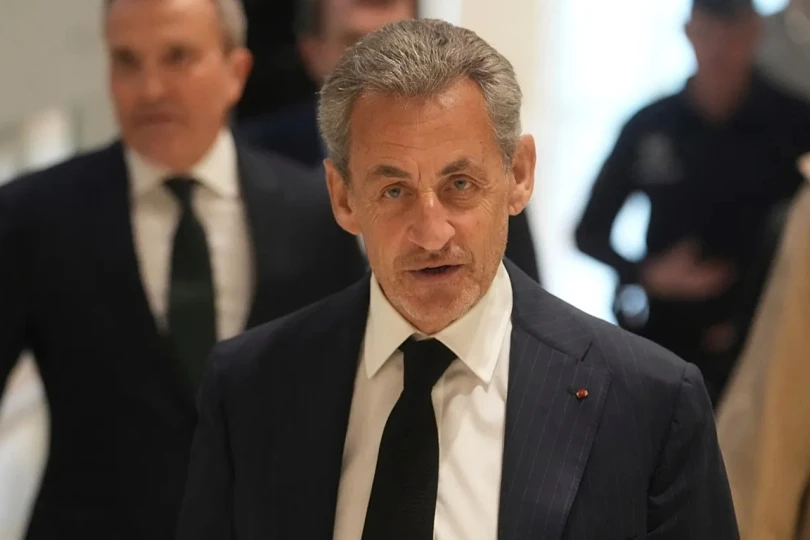The nightmare of 20 days for the first EU leader and president of France to be sentenced to imprisonment appears to have come to an end with the verdict for the release of Nicolas Sarkozy. The relief of recent hours for Sarkozy’s side removes the thriller atmosphere that prevailed in the previous period, accompanied by threats to the former French president’s life, intense anxiety and fears of poisoning. The days and nights in prison were marked by a special diet program as well as high-level protection for Sarkozy. Today, after the restrictive conditions imposed on the former French president with the decision to set him free became known, news emerged that Sarkozy got into his car and took the road home with Carla Bruni, who was a passenger in the vehicle.
The area around the former French president’s house, in Paris’s 16th arrondissement, has been transformed into a fortress with surrounding streets blocked off for security reasons. Describing his prison experience, the former French president spoke of a stay that was “very harsh,” “exhausting,” “nightmarish.”
“It’s harsh, very harsh, it certainly is for every prisoner, and I would even say it’s exhausting,” he specifically stated, adding that he didn’t expect to experience prison at 70 years old and that he wants to pay tribute to the correctional staff who “made this nightmare bearable.”
Nicolas Sarkozy a regagné son domicile du 16e arrondissement de Paris pic.twitter.com/E1LVHyikaP
— BFMTV (@BFMTV) November 10, 2025
Nicolas Sarkozy: Fear of poisoning and special diet
Sarkozy had been in confinement since October 21, having decided – as French media reported – on his own to follow a special dietary program. He had spoken of hostile feelings from fellow inmates, while refusing to touch any dish served in his cell.
The former president had even refused to obtain supplies from the canteen and prepare food himself, while from the day of his arrest he was reportedly eating – as had leaked – exclusively yogurt.
Sarkozy was found guilty of participating in a criminal organization in the Gaddafi case, which involved receiving millions of euros from illegal funds belonging to Libya’s deceased leader. What carries significant weight, however, is that scandals had been “hitting” him since 2012, when Sarkozy’s presidential term expired, marking the end of his time as France’s once-powerful leader. His involvement in legal troubles may place him in the “clique” of politicians like François Mitterrand and Dominique Strauss-Kahn, whose careers were marked by scandalous affairs.
“Pandora’s box” specifically opened for Sarkozy in 2013.
Sarkozy’s scandals
Years ago, Sarkozy’s staff had fought to justify the L’Oreal scandal, with then-Labor Minister Eric Woerth being charged with illegally receiving 150,000 euros from Liliane Bettencourt, the main shareholder of L’Oreal cosmetics company, to finance Nicolas Sarkozy’s 2007 presidential campaign.
Another case caused tremors in Paris, that of corruption involving Bernard Tapie’s name.
Nicolas Sarkozy allegedly – according to the charges – politically favored businessman Bernard Tapie in his legal dispute with the French state bank Crédit Lyonnais when he was Economy Minister in 2004. In 2008, when Sarkozy was president, his government approved an out-of-court arbitration that resulted in compensation of 403 million euros in favor of Tapie, using public funds.
It was later revealed that the arbitration was personalized and opaque. There were suspicions of political intervention to benefit Tapie, who was considered Sarkozy’s ally.
Tapie himself stated that he had Sarkozy’s “green light” for the arbitration. Although Sarkozy was not criminally charged, the case cast a heavy shadow over him and was considered evidence of collusion between politics and economic interests.
A few months ago, Sarkozy was forced to wear an electronic bracelet as part of his sentence, with the conviction relating to the “wiretapping case,” in which he was found guilty of corruption and influence peddling.




